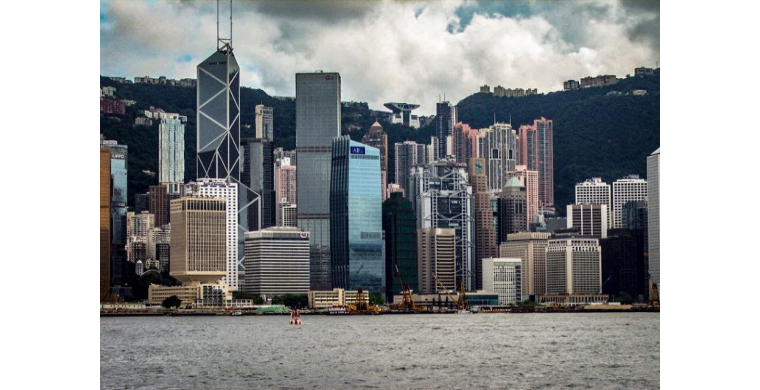Anglican Archbishop of Hong Kong defends national security law despite worldwide criticism
CHRISTIAN TODAY
July 13, 2020
The Anglican Archbishop of Hong Kong has voiced support for the widely criticised national security law imposed on the territory by Beijing.
In a letter published in the Church Times, the Most Rev Paul Kwong said he welcomed the law's implementation and refuted the suggestion that it poses a threat to religious freedom.
"I welcome this law, although it is one that I wish were not necessary," he said.
Echoing the language of Beijing, he suggested the implementation of the law was a necessary response to "riots" and violence at the hands of "rioters" protesting an attempt by the Hong Kong government to introduce legislation allowing the extradition of suspected criminals to the mainland for trial.
The Extradition Bill triggered months of pro-democracy protests attended by hundreds of thousands of Hong Kongers that continued even after the legislation was withdrawn.
Archbishop Kwong said: "This law is necessary for our well-being. Many critics do not accept the fact that we are part of China.
"They only emphasise two systems, not one country. I cherish our Hong Kong freedoms -- in particular the freedom of religion and way of life -- as much as anyone, and I don't think this law will change any of that. I am also proud to be living in China.
"What I hope the new law will do is diminish the agitation against the government that last year brought things to a standstill, and to restore law and order."
He said protesters had "committed acts that cannot be tolerated in any society".
"I support the right to peaceful demonstration, but I cannot condone violence, nor can I support anti-China political views," he said.
"The new law targets only law breakers, and it does not undermine any freedom of Hong Kong, in particular the freedom of religion.
"It does not affect the Church or any other religious organisation."
Cardinal John Tong Hon, the apostolic administrator of the Catholic Diocese of Hong Kong, has also dismissed concerns over religious freedom.
"I personally believe that the National Security Law will have no effect on religious freedom, because Article 32 of the Basic Law guarantees that we have freedom of religion, and we can also openly preach and hold religious ceremonies, and participate in religious activities," he said.
Their comments stand in marked contrast to other Church leaders who have voiced concerns for freedom under the new law.
Cardinal Joseph Zen, former Catholic Bishop of Hong Kong, said that Hong Kong had gone "back to the Cultural Revolution" and that the laws threatened the liberties of all Hong Kongers, not only Christians.
"Nobody will be spared," he said.
Speaking to World Over, he said that the Basic Law, which upholds religious freedom, is "finished" and that the authorities are now free to "do anything".
He added that many people are now leaving Hong Kong.
"We need your prayer because we are in the hands of the madness of our government," he said.
Asked whether he believed religious freedom was still protected under the national security law, the Cardinal said: "No, no."
To applaud this law is "against my conscience because this law is taking away all the freedoms, not only religious freedom but simply the freedom", he continued.
"Everybody is afraid and I'm telling people it's ok if you are afraid. You would be foolish not to be afraid because this law can do anything to you," he said.
He went on to say that he would continue to speak up.
"We bishops have a duty to defend freedom," he said.
Probed on Cardinal Tong's position, Zen said he "has to be obedient to the instruction from the Vatican and now to be with the Vatican almost means to be also full of respect to the Chinese government".
"The Vatican is pursuing constantly a policy of submissiveness to the Chinese government," he said.
Cardinal Maung Bo, president of the Asian Bishops' Conferences, has also spoken of his fears for Christians in Hong Kong.
"Will religious leaders now be criminalized for preaching about human dignity, human rights, justice, liberty, truth?" he said in a recent statement.
"We have learned from heavy experience that that wherever freedom as a whole is undermined, freedom of religion or belief -- sooner or later -- is affected."
Other Church leaders to have raised concerns about the national security law include the former Archbishop of Canterbury, Lord Williams, who was among the signatories of an international letter signed by hundreds of diplomats and dignitaries calling the law a "comprehensive assault on the city's autonomy, rule of law, and fundamental freedoms".
"The integrity of one-country, two-systems hangs by a thread," the letter said.
Also in the UK, Bishop Declan Lang, chair of the Catholic Bishops' Conference Department of International Affairs, last month called on the UK Government to fulfil its responsibilities under the Sino-British Joint Declaration.
"Like so many others in the Catholic community, I am deeply concerned by the continuing erosion of autonomy, suppression of political freedoms, and violent response to peaceful protests taking place in breach of this treaty," he said.
"The UK has a clear legal, moral and historical duty to safeguard fundamental freedoms in Hong Kong.
"Failure to do so at this critical time will not only have devastating consequences for more than seven million people living there but is also likely to have dangerous repercussions for human rights and international law more broadly."














